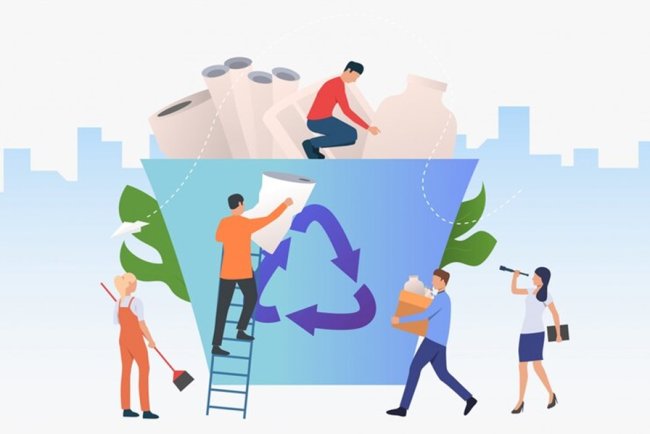India Needs Clearer Rules and Stronger Systems for Organic Farming, Say Experts
Experts push for simpler certification, stronger traceability, trained intermediaries and fairer market commitments to rebuild trust and place farmers at the centre of India’s sustainable farming transition

As the discussion moved into its second round, at Agroecology Summit 2025 “Pathways to Sustainable Food Systems”, the moderator, Dr. GV Ramanjaneyulu, Executive Director, CSA, steered the panel away from listing problems and toward finding practical solutions. “There is no point in talking about the problems,” he said. “If we are talking about solutions, what are the two or three things that can be done now so we can establish trust among consumers and incentivise farmers to adopt the system?
Simplifying Certification and Making it Farmer-Friendly
Vipul Mittal, Managing Director, National Cooperative Organics Limited, opened the session by reflecting on the earlier debate. “There is a dire need to simplify the certification process,” he said. He discussed how the current system often fails both farmers and consumers. Farmers without certificates can sell genuinely organic produce, while certified produce may not always meet the spirit of organic farming. He said there should be a more indigenous, streamlined approach: “We may borrow standards or adopt best practices, but the certification process can definitely be simplified.”
Mittal suggested using technology to reduce unnecessary subjectivity and limit the discretionary power auditors currently hold. With more than 40 NPOP certification bodies and over 100 entities involved in the PGS ecosystem, he compared the resulting confusion to having dozens of agencies issuing driving licences. Why can’t we have one unified system, the way we have a single authority for driving licences? ‘How can we potentially do some rework there for the domestic market?’ he asked.”
He also pushed for objective measurement. While organic farming is process-based, the product must still qualify for basic tests. Testing may appear expensive, he said, but expanding laboratory networks and government support can solve that: “If something measurable can give more assurance to the consumer, why not?” Training farmers and ensuring reliable access to organic inputs, he added, must go hand-in-hand.
Creating Evidence, Traceability and a Coherent Narrative
Naveen Horo, Senior Advisor, GIZ India, drawing on years of work with state and central governments through GIZ, pushed the discussion toward systemic change. His “big dream” is simple but sweeping: “When we started with the Green Revolution, we made industrial agriculture a norm. I want to see sustainable agriculture becoming the norm soon.”
He argued that the real cost of conventional farming—if subsidies were removed—is far higher than accepted. Yet there is no comparable incentive for agroecology. He described what markets actually look for: sustainable produce, scale, trust, and investment partnerships. But he noted a missing piece: “What interests the customer is not just a sustainable commodity. You’ve created gender inclusiveness, health benefits, and ecological gains. These narratives are missing.”
Traceability, he said, is key to building trust without relying solely on certification. Digital systems, farm-level books and farm-to-fork data trails can give consumers confidence even when traditional certification fails. “You can sell a story with evidence,” he explained. “Once you build a traceability system, you can take it to organic, GAP, or any other regime.”
Who Certifies the Certifiers? Rebuilding Trust in the System
Turning to the crisis of trust itself, Anil Jadhav, Managing Director, EcoCert, addressed the erosion of confidence in India’s certification agencies. He described the cultural weight of farming: “Organic is close to religion. You can’t fake it. It is either real or not.” But today, rising consumer expectations—demanding 100% clean food—have pushed standards into unrealistic territory.
“We have bigger problems than expecting perfectly clean organic,” he warned. He stressed that certification bodies like EcoCert (and the 40 NPOP agencies) simply follow NPOP requirements—requirements India created to serve European markets, not domestic needs. This mismatch creates distortions across the system.
A severe capacity gap makes things worse. India needs 45,000 trained internal auditors to support 20 lakh farmers under NPOP. “Where are these 45,000?” he asked. Without trained intermediaries, farmers remain confused, excluded, and unsupported.
He called for training agriculture students and building a skilled intermediary workforce. These people could be the bridge: “Once farmers understand the requirements, trust will improve.”
He also insisted that India must tell the bigger story—impact on livelihoods, environment and income—not just focus on whether something is certified.
Putting Farmers at the Centre, Not the Bottom of the Chain
Bringing the farmer’s perspective, Aneel Kumar Ambavaram, Director, Viroha Impex, said that certification must shift from a tick-box exercise to a facilitation process. “Big words,” he said, “but it has to work for everyone, including farmers.”
He described the gulf between farmers and brands: “I have met procurement leads who have never seen a cotton plant or met a farmer in their lives. Farmers and brands inhabit two different worlds and speak different languages.”
His organisation flips the usual model by approaching brands first, not farmers. They force brands to commit to a minimum three-year partnership, pay premiums from the first year, invest in training and inputs, and adopt each acre.“Your business is rooted in the resilience at the farm level,” he tells brands. “So what is your commitment? What is your skin in the game?”
This model also shares risk. When cyclones devastated Andhra Pradesh cotton farms this year, brands were expected to stand by farmers instead of hiding behind certification loopholes.
“The smallest, poorest player—the farmer—is taking the biggest risk,” he said. “This power balance has to change.”
Click here to read Part 1
What's Your Reaction?

















